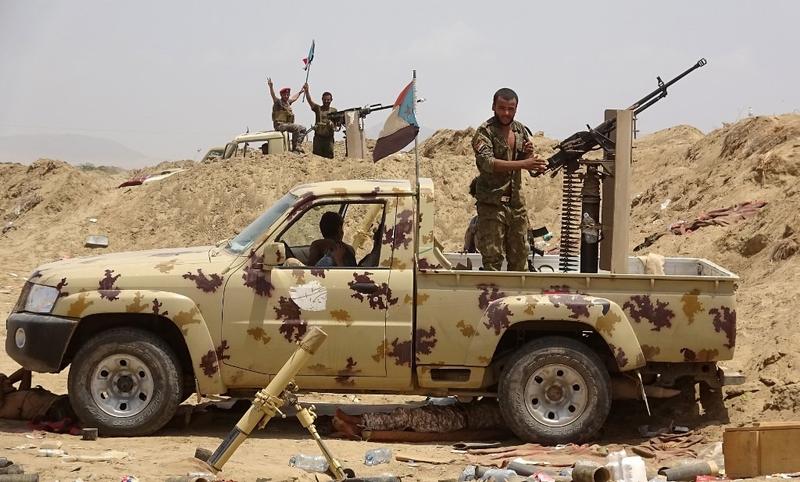 Fighters loyal to Yemen's separatist Southern Transitional Council stand guard in the Sheikh Salim area in the southern Abyan province on May 18, 2020, (PHOTO / AFP)
Fighters loyal to Yemen's separatist Southern Transitional Council stand guard in the Sheikh Salim area in the southern Abyan province on May 18, 2020, (PHOTO / AFP)
DUBAI — Yemen’s Saudi-backed government and southern separatist forces have agreed on a ceasefire and will begin talks in Saudi Arabia on implementing a peace deal, the Saudi-led coalition said on Monday.
The government, based in the southern port of Aden, and the separatists are nominal allies in the Saudi-led coalition, which has been at war against the Iran-aligned Houthis that have controlled the capital since 2014.
However, the separatist Southern Transitional Council (STC) declared self-rule in April, and the two sides have been fighting in the south, complicating UN efforts to forge a permanent ceasefire to the overall conflict.
More than 100,000 people have been killed, mostly civilians, and millions depend on international food aid in what the United Nations describes as the world’s biggest humanitarian crisis
ALSO READ: Saudi-led coalition in Yemen calls for end to escalation in south
Tensions escalated over the weekend after the STC seized control of Socotra, a Yemeni island in the Arabian Sea, deposing its governor and driving out forces of the government.
The two sides have now agreed to a ceasefire in Abyan province along the coast east of Aden, as well as de-escalation of tensions in Socotra and other regions, and the start of talks, according to a statement from the Saudi-led coalition.
“The Coalition calls on all Yemeni political, social and media components and powers to support the parties’ response to convene a meeting in Riyadh, and work diligently to implement the Agreement,” the statement added.
READ MORE: Saudi-led coalition announces ceasefire in five-year Yemen war
The Coalition will deploy observers in Abyan to observe the ceasefire and separation of forces, it said.
Riyadh wants to prevent another front developing among its allies in Yemen’s multifaceted war, which has been locked in military stalemate for years.
More than 100,000 people have been killed, mostly civilians, and millions depend on international food aid in what the United Nations describes as the world’s biggest humanitarian crisis.


